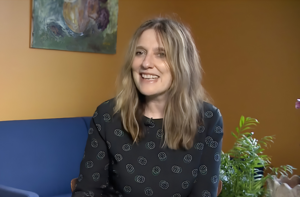Regina Barzilay
Biography
Regina Barzilay’s work has led to significant advances in the field of medicine. Previously, machine learning models for molecular bioactivity used architectures developed for computer vision or natural language processing, which neither attended to the specific properties of molecular structures nor had sufficient predictive power for drug discovery. Barzilay developed neural molecular representations that accurately capture molecular structures in a multi-resolution fashion and algorithms that can manipulate these representations in a computationally tractable fashion. In the field of clinical AI, her image-based ML models can accurately predict the likelihood of breast cancer up to five years before traditionally diagnosable occurrence. The models double the detection rate of state-of-the-art risk algorithms used in clinical practice while generalizing across diverse populations and imaging devices. Recently, Barzilay expanded this research to other types of cancer, developing and deploying Sybil, a tool that accurately predicts the future risk of lung cancer. Additionally, her mammogram reading system, MIRAI, has been tested and implemented in 44 hospitals in eight countries. During the pandemic, when hospitals were overwhelmed with COVID-19, limiting their ability to perform cancer screening, the MGH Cancer Center used the system to identify high-risk patients who had to be prioritized for mammograms. Barzilay’s earlier work focused on natural language processing related to dead language decipherment. Her model produced alphabetic mappings, analyzing the morphological structure of a lost language and translating its words into their corresponding cognates in the known language. She successfully applied this method to the ancient language Ugaritic, translating it into Hebrew.
Barzilay is the School of Engineering Distinguished Professor for AI and Health, AI Faculty Lead, Jameel Clinic, and MIT Computer Science & Artificial Intelligence Lab, Massachusetts Institute of Technology, Cambridge, Massachusetts, USA. She is the 2025 IEEE Frances E. Allen Medal recipient for "For innovative machine learning algorithms that have led to advances in human language technology and demonstrated impact on the field of medicine."
